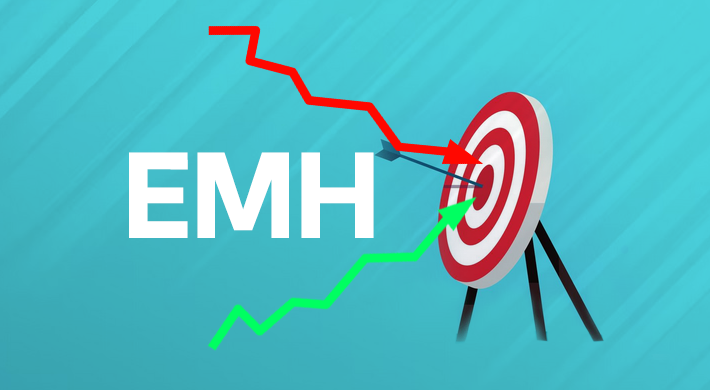Reviewing the Efficient Market Hypothesis:
A Trader’s Odyssey through Theory and Dissent
The Efficient Market Hypothesis (EMH) has cast a long shadow over the world of finance, captivating and captivating forex traders with its stark implications: can markets be beaten, or are we all treading water in a sea of random price movements? This article delves into the depths of the EMH, examining its core tenets, prominent supporters and detractors, and its relevance for the modern forex trader.
The Siren Song of Efficiency:
At its heart, the EMH posits that asset prices, including currencies, fully reflect all available information, making them unpredictable in the long run. Prices react instantaneously to new information, rendering technical analysis and fundamental analysis futile in the quest for market-beating returns. Eugene Fama, a Nobel laureate and EMH champion, argues that excess returns can only be achieved through luck or increased risk, not skill. This, for many traders, is a bitter pill to swallow.
Delving into the Three Forms of (Efficient market hypothesis):
The EMH is not a monolithic concept, but rather a spectrum of informational efficiency manifested in three distinct forms:
- Weak Form EMH: Prices incorporate all historical information, rendering technical analysis based on past price patterns ineffective.
- Semi-Strong Form EMH: Prices reflect not only historical data but also public and readily available private information, effectively nullifying the predictive power of fundamental analysis.
- Strong Form EMH: Prices embrace the entirety of information, encompassing public, private, and even yet-to-be-discovered knowledge, rendering any form of analysis futile.
Championing the Hypothesis:
EMH proponents find solace in its theoretical elegance and practical implications. It underpins efficient markets through:
- Reduced transaction costs: If prices reflect information efficiently, fewer mispricings exist, lowering the need for costly arbitrage.
- Improved capital allocation: Resources flow to their most productive uses when prices accurately reflect future cash flows.
- Investor protection: Efficient markets hinder insider trading and market manipulation, promoting a fairer playing field.
Supporting the Hypothesis:
- Eugene Fama: A Nobel laureate and EMH champion, Fama postulates that rational competition among investors drives market efficiency. He emphasizes the rapid incorporation of information and the difficulty in consistently outperforming the market.
- Milton Friedman: Another Nobel laureate, Friedman believed the EMH explains market volatility not through informational inefficiencies but through unexpected news and the inherent unpredictability of human behavior.
The Dissenters’ Chorus:
However, the EMH is not without its critics. A cacophony of dissenters challenges its assumptions and empirical validity:
- Behavioral Finance: Proponents like Richard Thaler argue that psychological biases and cognitive limitations affect trading decisions, leading to predictable market inefficiencies. Currency carry trade strategies and herding behavior are cited as examples.
- Market Anomalies: Critics point to persistent historical patterns, like calendar effects and weekend effects, that suggest systematic deviations from random price movements. These anomalies, they argue, offer potential trading opportunities.
- Central Bank Interventions: Critics argue that central bank interventions and coordinated policy actions can artificially influence exchange rates, contradicting the EMH’s claim of informationally efficient markets.
Challenging the Theory:
- John Maynard Keynes: A key EMH critic, Keynes argued that markets are inherently irrational and prone to bubbles and crashes due to investor sentiment and psychological factors.
- George Soros: A renowned investor, Soros believes markets exhibit inefficiencies due to reflexivity, where market prices influence economic fundamentals, creating feedback loops that can deviate from rational equilibrium.
Navigating the Murky Waters:
For the forex trader, the EMH presents a conundrum. Should they surrender to the tide of market efficiency or try to chart a course through the currents of potential inefficiencies?
- Embrace Diversification: Regardless of the EMH’s validity, a well-diversified portfolio remains a cornerstone of risk management.
- Seek Information Advantages: Strive to uncover unique insights or interpret information differently to gain an edge, even if the market is efficient.
- Focus on Execution and Risk Management: Regardless of your market view, effective execution and robust risk management are crucial for long-term success.
Conclusion:
The EMH remains a cornerstone of financial theory, but its universal applicability in the dynamic world of forex trading is debatable. Understanding both its strengths and limitations allows traders to navigate the market with clear eyes and make informed decisions based on their risk tolerance and trading style. Whether the EMH is a siren song luring traders to their doom or a guiding light towards market understanding is ultimately for each individual to decide. Remember, in the ever-turbulent sea of forex, knowledge is your lifebuoy, and careful navigation is your compass.
This article provides a foundation for further exploration. Dive deeper into the specialized literature cited, and remember, the journey through the EMH is an ongoing one, with new discoveries and challenges arising every day. Keep your skepticism sharp, your analysis thorough, and your trading decisions well-informed, and you may yet find your own profitable path through the market’s churning waters.
For Further Exploration:
- Fama, E. F. (1970). Efficient capital markets: A review of theory and empirical work. Journal of finance, 25(2), 383-417.
- Shiller, R. J. (2000). Irrational exuberance. Princeton university press.
- Richard Thaler, “Misbehaving: The Making of Behavioral Economics” (2015)
- Andrew Lo, “Adaptive Markets: Financial Evolution at the Edge of Chaos” (2011)
- Roubini, Nouriel. The bubble of the American dream: Why it’s broke, and how to fix it. Penguin Books, 2010.
Happy trading
may the pips be ever in your favor!









